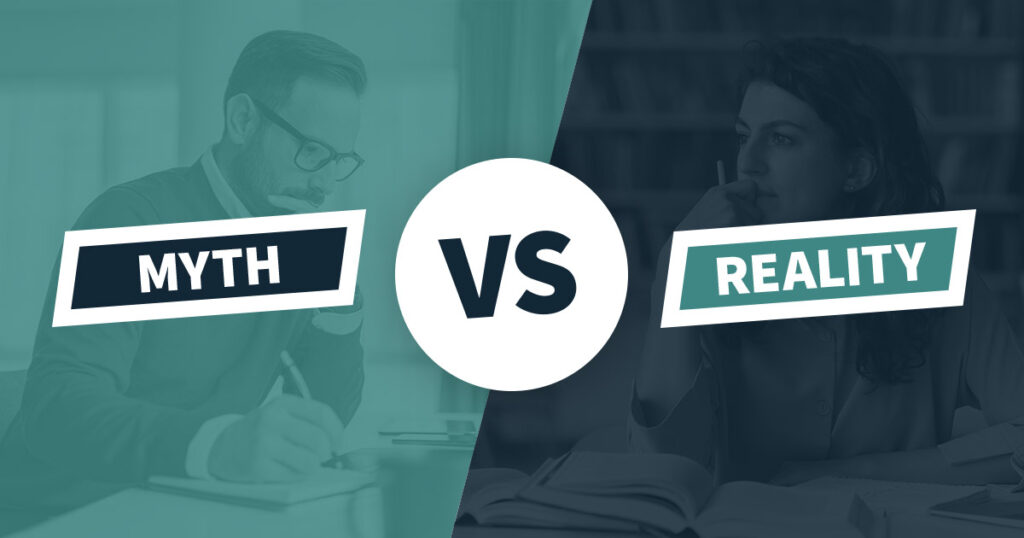
In pursuit of providing our clients with the best, most up-to-date security options for their exam delivery, Meazure Learning has developed a new, secure browser for remote testing—the Guardian Browser. Guardian is the newest technology in our suite of exam integrity and proctoring solutions and will replace our browser extension as the means for test-takers to connect to their exam sessions. We built the Guardian Browser—as we do all our products—with test-taker privacy and data security as high priorities. Our aim is to be as transparent as possible with our policies around data protection so test-takers can feel confident their data is secure and neither our technology nor our staff will misuse it.
We’ve already busted some myths about how Guardian and the plateforme ProctorU handle test-takers’ sensitive information. In this iteration, we’ll bust four common myths about Guardian and other secure browsers, easing concerns about our technology and our intentions with it.
Myth #1: Guardian stores or tracks personally identifiable information.
Reality: Safeguarding personally identifiable information (PII) is essential in an online world where identity theft and phishing scams run rampant. We understand the importance of protecting test-takers’ PII through all stages of the exam. So, while the Guardian Browser and the ProctorU Platform are highly interconnected, all collected PII—such as name and email address—is only stored in the ProctorU Platform. The Guardian Browser doesn’t store any PII, nor is it capable of tracking such information. In fact, our secure browser goes one step further: Guardian clears its history, cookies, and cache after every session so none of your test-takers’ information—personal or otherwise—ends up in third-party hands.

Myth #2: The Guardian Browser is not a “secure” browser.
Reality: We built Guardian using the Electron framework, which also powers the most widely used browser in the world—Google Chrome—so it’s just as secure. In addition, we put Guardian through a rigorous third-party security audit to ensure that we’re protecting exam information and test-taker privacy with the highest security. Guardian passed all security tests with flying colors. We’ve also recently achieved SOC 2 Type II compliance, guaranteeing an even more robust security solution for your exam content and test-taker information. This means that you and your test-takers can be confident that their information is secure any time they use the Guardian Browser.
Myth #3: Guardian can access computer settings while not in use.
Reality: Test-taker privacy, experience, and comfort are of utmost importance when administering an exam. Once the exam is finished, test-takers shouldn’t worry they’re being monitored—because they’re not. The security settings that allow Guardian to access a test-taker’s computer are ONLY in effect while a ProctorU proctoring session is active. Security functions such as disabling screenshots, preventing copy and paste, and locking down the virtual environment are only triggered when test-takers launch a proctoring session. Once they’ve finished their exam, they’ll exit Guardian—or their proctor will end the exam session—and the security settings will no longer be enforced.
Myth #4: Guardian can only be used for a ProctorU proctoring session.
Reality: Regardless of whether a test-taker is launching an exam, they can use Guardian exactly as they would any other browser. It has basic search engine capabilities, so once it’s downloaded, test-takers can use it whenever they would like, to search the internet or browse websites. Guardian also clears the history, cookies, and cache after each session—much like Chrome’s Incognito feature—so you can be sure your test-takers’ browsing sessions are private. However, when a test-taker connects to a ProctorU remote proctoring session, Guardian will automatically redirect them to the exam pre-launch process to begin their exam.
Conclusion
Meazure Learning is dedicated to safeguarding your exam materials and your test-takers’ privacy. The Guardian Browser is an additional layer of security we can provide to keep your test-takers protected. You can learn more about how we defend your test-takers’ information and your exam’s security in our video “Exam Security Solutions for an Evolving Industry.”